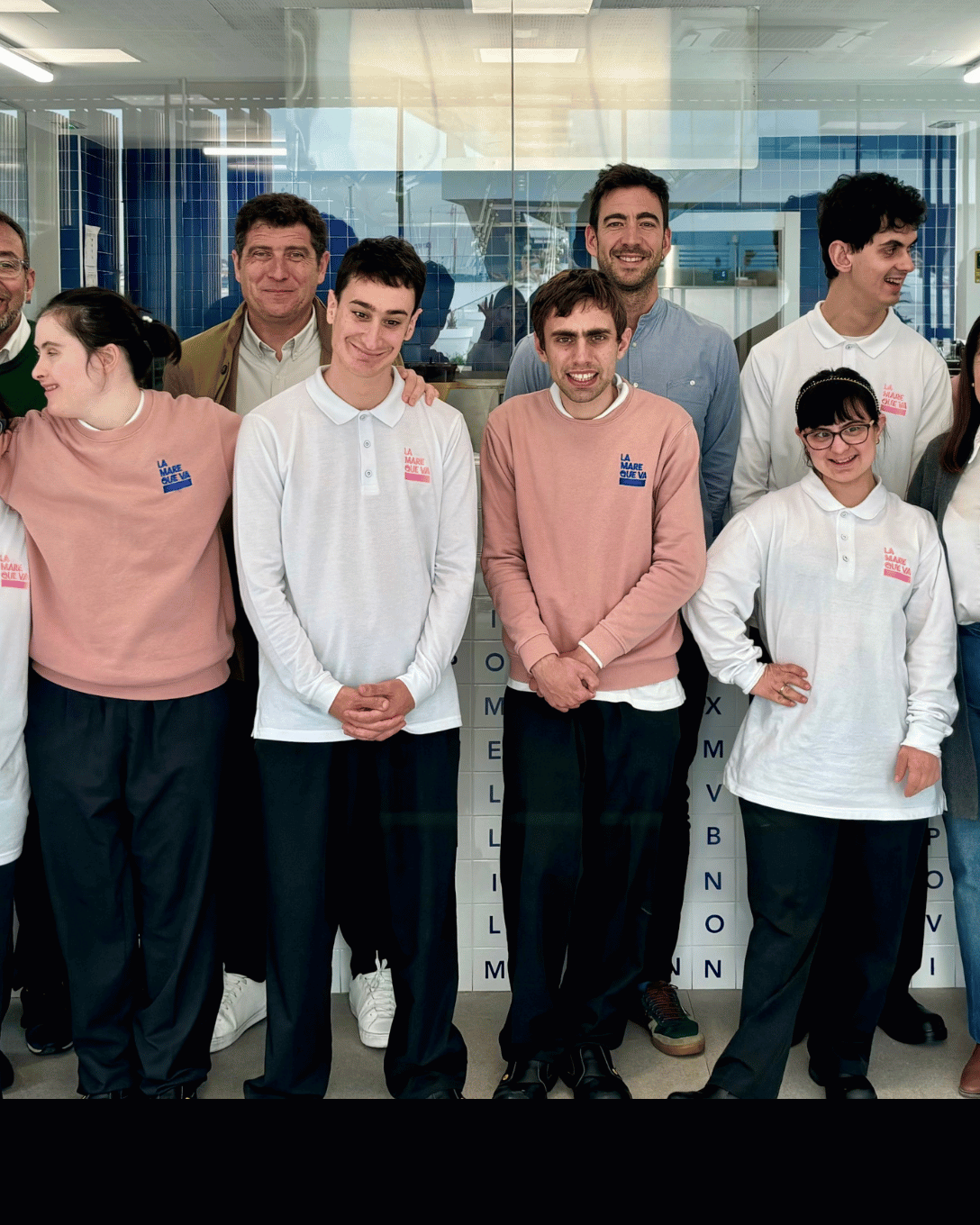At Startup Valencia we celebrated International Women’s Day by identifying 32 leading women in the national innovative and tech ecosystem for their constant commitment to the mission of developing a more egalitarian entrepreneurial community:
- Sofia Benjumea, Head of Google for Startups EMEA.
- Yolanda Pérez, Director of BStartup and Hub Empresa of Banco Sabadell.
- Patricia Pastor, Managing Director of GoHub Corporate Venturing.
- Marta Antúnez, Director of Wayra Barcelona.
- María Benjumea, Founder of South Summit.
- Silvia Bruno, Chief Innovation & Technology Officer at Grupo Red Eléctrica and Director of Elewit.
- Elena de Benavides, Open Innovation & Entrepreneurship Lead at Elewit.
- Paloma Mas, Events and Culture Manager at Plug and Play Tech Center.
- Laura Gil, Director of Digital Transformation at Damm.
- Margarita Albors, Founder and President of the Social Nest Foundation.
- Majo Castillo, CEO of Zeus and COO of Sesame HR.
- Carmen Martínez, Director of BIGBAN Private Investors.
- Virginia Sánchez, Managing Director of Zubi Labs.
- Beatriz Jacoste, Director of KM Zero.
- María Márquez, Area Director of Ideas UPV.
- Luz Adell, Partner and CFO at Draper B1.
- Raquel Bernal, Managing Partner of Draper B1.
- Ángela Pérez, VP Life Science at Health in Code.
- Clara Fernández, Co-founder of Rosita Longevity.
- Paula Sánchez, Co-founder and CEO of CoCircular.
- Pilar Prados, Co-founder and CEO of Bounsel.
- Clara Torrijos, Co-founder and CEO of GoKoan.
- Marta Zaragozá, Co-founder and CEO of Declarando.
- Paula Arias, Co-founder of Fresh People.
- Estefanía Ferrer, Founder and CEO of Lico Cosmetics.
- Marta Nogueras, Director of Projects at Lanzadera.
- Celia Viana, Investment Analyst at Angels Capital
- Judith Saladrigas, Partner of the Innovation and Entrepreneurship Area of DWF-RCD.
- Ana Carrau, Founder and CEO of Upbeat Modus.
- Eve Pattison, CEO of Big Translation.
- Alejandra Menéndez, Director of Valencia Digital Summit.
- Karina Virrueta, Ecosystem Development Manager at Startup Valencia.
We have spoken with many of them to understand how we can all build a more egalitarian ecosystem and inspire other women to discover the world of tech innovation and digital entrepreneurship. These are the main conclusions drawn from the questions asked by Startup Valencia.
Women directors, women founders
According to the data extracted from the latest report of the Startup Observatory of the Valencian Community prepared by Startup Valencia, one in three registered startups has at least one female co-founder in their team and 80% claim to be committed to gender equality and the empowerment of women as part of the Sustainable Development Goals promoted by the United Nations.
We asked these key figures why they consider it important for there to be more women in management positions and/or founding their own companies. All the answers revolved around three key concepts: visibility, diversity and return.
- Visibility
Even though there are more and more women in management positions or founding companies, the support and visibility of leading female figures in the tech and innovative sector continues to be essential to keep moving closer to a state of equality.
“It is difficult to aspire to be something that you have rarely seen,” reflects Sofía Benjumea (Google for Startups). “The more women there are at the head of their own companies or in managerial positions, the more women will say to themselves ‘if she can, so can I’ and they will become role models for today’s girls and young women. For this to happen, it is important to give visibility to women who are currently in this position and to encourage many more in the coming years. This is achieved by educating girls and boys equally and showing them the work of thousands of women who hold positions of responsibility, who undertake entrepreneurial projects and who, ultimately, believe in themselves to do all of it.”
Patricia Pastor (GoHub) speaks along the same lines. “It is very important so that future generations of managers, engineers or entrepreneurs have it easier than us and already have their references. This will inspire them to keep fighting to achieve their goals”, she argues.
- Diversity
Many of the interviewees consider that greater female representation in management positions would lead to more engaging points of view and more inclusive solutions.
Yolanda Pérez (BStartup Banco Sabadell): «For a few years now we have noticed that there are many more initiatives led by women and in the startup ecosystem we are increasingly going to see more women launching and consolidating technological projects. Without a doubt, diverse companies are much better focused on the market”. 30% of startups in the bank’s portfolio have at least one woman in the founding team.
Paloma Mas (Plug and Play Tech Centre): “ Women are much more aware of our actions in today’s society. We think more naturally about the consequences of our actions on others, which makes us able to be much more inclusive and realistic. More women must undertake entrepreneurial projects and have management positions if we want a more open, modern and diverse future.”
Judith Saladrigas (DWF-RCD): “In a work environment and culture based on diversity and in which each professional contributes at the best of their ability, differences and different approaches have a very positive impact at the business level.”
For Karina Virrueta (Startup Valencia), it is important for there to be more women in management positions and/or founding their own companies “because a more diverse society is necessary, and it is women who can provide that quality because they have a different way of leading and undertaking projects, they have a natural tendency to think about their actions and the consequences of these on others.”
- Return
It is interesting to note that there is also a more pragmatic and entrepreneurial aspect whereby female entrepreneurs themselves would like to promote more companies run by other women.
Clara Fernández (Rosita Longevity): “We represent 50% of consumption and of the problems to be solved. We have many different needs, a different vision of how to solve things, and different messages reach us (more precisely, our hearts and brains). Women representing 50% of managerial positions or founded companies would mean that there is representation for the desires and needs of 50% of the population. The representation of women in key positions isn’t a question of justice for me personally, but a question of business strategy.”
Paula Arias (Fresh People): “All of us are different, but it is precisely the diversity and heterogeneity in our way of thinking which makes the team stronger and more effective. Unfortunately, we live in a reality where only a very small percentage of business management is made up of women, when it is biologically proven that women contribute a series of strengths (in the leadership of people, in decision-making, in internal management, etc.) that contribute to that healthy balance of the team.”
Estefanía Ferrer (Lico Cosmetics): “Women have great leadership skills, starting with our ability to create and organise good teams, which in the end is the key to a successful company.”

Inspiring and helping other women
The startup atmosphere usually has very collaborative environments formed by its different members. To make greater female presence a reality in entrepreneurial ecosystems, there is nothing like supporting each other and moving from words to actions.
We have asked these key figures how they can inspire and help other women from their position, and this is what they told us:
Carmen Martínez (BIGBAN Inversores Privados): “I collaborate with Technovation Girls, an initiative that aims to encourage entrepreneurship in adolescent girls through a series of international tech entrepreneurship contests. In addition, I’m always open to helping and collaborating with women who need me.”
Marta Nogueras (Lanzadera): “There is still a lot of work to do to unite female entrepreneurs in the startup ecosystem. In 2020, several female investors and mentors got together to mentor others through VCs4Women. It is crucial to have regular initiatives like this in our ecosystem. It is also important to be accessible, in my case I try to contribute by mentoring or connecting people who I think can help each other.”
Pilar Prados (Bounsel): “On a public level, I recommend being active on social networks and appearing regularly in the media to tell your story, challenges and successes. At a private level, I recommend connecting with the local and sectoral community. In my case, I regularly collaborate in Valencia with events organised by València Activa and Startup Valencia, where I am part of the Seed Committee. Inside the entrepreneurial ecosystem, I work with Google for Startups, StartUPV and W Startup Community, among others. Finally, inside the Legaltech sector I work with Legal Hackers and the Fundación Mutualidad Abogacía where I’m part of the Youth Council.”
Ana Carrau (Upbeat Modus): “I have been promoting and making female talent visible for a long time now through events, individual and group mentoring, training, etc. I founded the first community of female entrepreneurs in Valencia with Celia Domínguez and now I encourage female leadership with The Impact Project. I have collaborated as a host or promoter in many meetings that support and highlight women seeking that inclusion that I was talking about before. And I also try to set an example: acting as a role model helps others to take the step. For this reason, I hold representative positions in various entities such as AJEV or Circle of Studies on Innovation.”
Among the initiatives which the interviewees make reference to, the following stand out: Women Action Sustainability, Women Founders Academy, #IAmRemarkable, Women Will, Google Women Techmakers and The Impact Project.
Obstacles for women entrepreneurs
We have also asked them about the obstacles that female entrepreneurs face and whether these are different from those male entrepreneurs may face.
Among the responses, a high level of self-criticism is striking. Beyond the difficulties related to reconciling family and motherhood, or the fact that they are most usually masculinized environments, many of the interviewed entrepreneurs look to empower themselves and break stereotypes that are in their power to change.
Virginia Sánchez (Zubi Labs): “I have identified three main obstacles. First: the bias of investors and society. Numerous studies explain why a woman with the same project as a man has a much lower chance of raising capital. Second: women sell themselves worse, they have less self-confidence, and the reality is that most of the time that makes them much more prepared, but they don’t communicate it. Third: the role that our society has given them, the social pressure. In certain circles, a woman becoming an entrepreneur instead of having children, or instead of spending more time with her children and looking for a more stable job, is not well seen.”
Luz Adell (Draper B1): “Cultural barriers, stereotypes and family obligations hinder equality in the entrepreneurial world. The lack of female leadership models holds back the aspirations of the new generations.”
Paula Sánchez (CoCircular): “Generally, what I perceive is that there are two main types of obstacles: initial fears regarding ambition (in younger profiles) and problems of conciliation with the family (in more senior profiles).”
Marta Zaragoza (Declarando): “The road to getting a company up and running is fraught with difficulties and it is not an easy task for anyone, but even less so when it has to be combined with motherhood. Having a child and being an entrepreneur, at the same time, is like juggling constantly with the limits of your professional and personal development: it is very hard, although it also gives you a lot of strength to continue moving forward and helps you grow, both personally and professionally.”
In conclusion and taking into account the responses of these leading women in the innovative and technological ecosystem, we can summarise this series of measures and actions that can help to promote female entrepreneurship and balancing the scales:
- Creation of training programmes in digital entrepreneurship aimed at women.
- Increase in VC portfolios and especially Business Angels in the number of investee companies whose founding team includes female entrepreneurs.
- Increasing parity in the panels and talks at technological events, meetups and other ecosystem meetings.
- Improving ease of access to female talent for greater participation in boot camps and hackathons to reduce the talent gap that especially affects the technology sector.
Finally, and with the aim of making us all aware of the importance of making these messages and the spokespersons who deliver them visible, we recommend reading the report ‘Women’s digital entrepreneurship in Spain: situation and outlook’.



